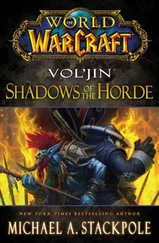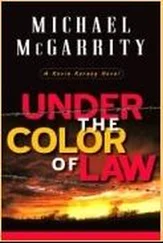Michael Ridpath - Where the Shadows Lie
Здесь есть возможность читать онлайн «Michael Ridpath - Where the Shadows Lie» весь текст электронной книги совершенно бесплатно (целиком полную версию без сокращений). В некоторых случаях можно слушать аудио, скачать через торрент в формате fb2 и присутствует краткое содержание. Жанр: Триллер, на английском языке. Описание произведения, (предисловие) а так же отзывы посетителей доступны на портале библиотеки ЛибКат.
- Название:Where the Shadows Lie
- Автор:
- Жанр:
- Год:неизвестен
- ISBN:нет данных
- Рейтинг книги:5 / 5. Голосов: 1
-
Избранное:Добавить в избранное
- Отзывы:
-
Ваша оценка:
- 100
- 1
- 2
- 3
- 4
- 5
Where the Shadows Lie: краткое содержание, описание и аннотация
Предлагаем к чтению аннотацию, описание, краткое содержание или предисловие (зависит от того, что написал сам автор книги «Where the Shadows Lie»). Если вы не нашли необходимую информацию о книге — напишите в комментариях, мы постараемся отыскать её.
Where the Shadows Lie — читать онлайн бесплатно полную книгу (весь текст) целиком
Ниже представлен текст книги, разбитый по страницам. Система сохранения места последней прочитанной страницы, позволяет с удобством читать онлайн бесплатно книгу «Where the Shadows Lie», без необходимости каждый раз заново искать на чём Вы остановились. Поставьте закладку, и сможете в любой момент перейти на страницу, на которой закончили чтение.
Интервал:
Закладка:
Hekla had a fearsome reputation and no one had climbed it before. But the three men were brave and undaunted, so early the next morning they set off for the volcano. On the second day, they were most of the way up the mountain when Asgrimur slipped down a gully and broke his leg. He could not continue further, but he agreed to wait until the brothers returned from the summit.
He waited until nearly midnight before he heard the sound of footsteps scrambling down the mountain. But there was only one man, Gaukur. He told Asgrimur what had happened. He and his brother were standing by the crater at the top of the mountain. Isildur took the ring from its box and was about to toss it into the crater, but he seemed unable to do so. He said that the ring was very heavy. Gaukur urged him to throw it, but Isildur became angry and put the ring on his finger. Then he turned and before Gaukur could grab him, he leaped into the crater.
‘At least the ring is destroyed,’ said Asgrimur. ‘But at a very high price.’
In the years afterwards, Gaukur changed. He became vain and quarrelsome, cunning and greedy. But he was even stronger and braver in battle and had a fearsome reputation. Despite all this, his foster-brother Asgrimur remained steadfast in his loyalty. He frequently supported Gaukur in the various disputes Gaukur was involved in at the annual gathering of the Althing in Thingvellir.
Gaukur married Ingileif. She was a wise woman and beautiful. She had a strong temper, but she was usually quiet. She noticed the change in Gaukur and she did not like it. She also noticed that Gaukur spent much time at Steinastadir, the farm of his neighbour Ketil the Pale.
Ketil the Pale was a clever farmer, wise and peaceful and a gifted composer of poetry. He was popular with everyone, except perhaps his wife. Her name was Helga. She had fair hair and long limbs and was contemptuous of her husband, but admired Gaukur.
There was a marsh between the two farms, on Ketil the Pale’s land. It was waterlogged in winter, but in spring it produced very sweet grass. One spring Gaukur decided to graze his own cows on the land and chased Ketil the Pale’s cows away. Ketil the Pale protested, but Gaukur brushed him off. Ketil the Pale did nothing. Helga scolded her husband for being so weak.
After midsummer, when Gaukur was returning from the Althing at Thingvellir, he passed by Ketil the Pale’s farm. He came across a slave of Ketil the Pale who was slow to get out of his way. So Gaukur chopped off his head. Once again, Ketil the Pale did nothing.
Helga was again contemptuous of Ketil the Pale. She scolded him from morning until night, vowing never to share his bed again until he had demanded compensation from Gaukur.
So Ketil the Pale rode over to Stong to speak to Gaukur.
‘I have come to demand compensation for the unlawful killing of my slave,’ Ketil said.
Gaukur snorted. ‘His killing was perfectly lawful. He blocked the way back to my own farm and would not let me pass.’
‘That is not my understanding of what happened,’ said Ketil.
Gaukur laughed at him. ‘You understand very little, Ketil. Everyone knows that every ninth night you are the woman to the troll of Burfell.’
‘And they know that you could not sire anyone because you were gelded by the troll’s daughters,’ Ketil replied, for at that time Gaukur and Ingileif had no children.
Whereupon Gaukur picked up his axe and after a brief struggle chopped off Ketil the Pale’s leg. Ketil dropped down dead.
Afterwards Gaukur made even more visits to Ketil the Pale’s farm, where Helga was now the mistress. Ketil’s brother’s demanded compensation from Gaukur, but he refused to pay, and his foster-brother Asgrimur supported him loyally.
Ingileif was jealous, and determined to stop Gaukur. She spoke to Thordis, Asgrimur’s wife and told her a secret. Isildur had not jumped into the crater of Hekla while wearing the ring. He had been killed by Gaukur, who had taken the ring, and then pushed his brother into the crater. Gaukur had hidden the ring in a small cave watched over by a troll’s hound.
Thordis told her husband what Ingileif had said. Asgrimur did not believe her. But that night he had a dream. In his dream he was with a group of men in a great hall and an old Sami sorceress pointed to him. ‘Isildur tried and failed to destroy the ring and was killed in the process. Now it is up to you to find the ring and to take it to the mouth of Hel.’
Killing a man without reporting it was a great crime. Although Asgrimur was convinced by his dream, he had no proof with which to accuse Gaukur, and Gaukur was not the man to accuse without proof. So Asgrimur went to his neighbour Njall, a great and clever lawyer, to help him. Njall admitted that it would be impossible to prove anything at the Althing. But he suggested a trap.
So Asgrimur told Thordis who told Ingileif that Isildur had given him a helm in secret when he had returned from Norway. The helm belonged to Fafnir, the son of Hreidmar, and it was famous in legend. Asgrimur had hidden it in an old barn on a hill at the edge of his farm at Tongue.
Then Asgrimur stood watch, hiding in the roof of the barn to ambush Gaukur, if he should come looking for the helm. Sure enough, on the third night, he caught Gaukur entering the barn, looking for the helm. Asgrimur confronted Gaukur who drew his sword.
‘Would you kill me in order to steal what is not yours, just as you killed your brother?’ Asgrimur asked.
In answer Gaukur swung his sword at Asgrimur. They fought. Although Gaukur was the stronger and the better warrior, he was overconfident and Asgrimur was fired with anger at the betrayal by the foster-brother whom he had always supported so loyally. He ran Gaukur through with a spear.
Asgrimur searched for the ring but never found it and Ingileif would not tell him where it was hidden. She said that the ring had already caused enough evil and should be left to rest.
Six months after Gaukur’s death, Ingileif gave birth to a son, Hogni.
But the ring did not lie quietly. A century later there was an enormous volcanic eruption and Hekla smothered Gaukur’s farm at Stong in ash, to be lost for ever.
The ring is still hidden somewhere in the hills near Stong. One day it will emerge, just as it emerged out of the Rhine at the time of Ulf. When it does, it must not fall again into the hands of an evil man. It must be tossed into the mouth of Mount Hekla, as the Sami sorceress decreed.
Until that time this saga shall be kept secret by the heirs of Hogni.
Magnus handed the last page to Arni, who still had several pages to go, which was fair enough since English was not his first language. Magnus stared out over the lake at the two small islands in the middle.
He tried to control his excitement. Could the saga be real? If it was, it would be one of the greatest finds in Icelandic literature. More than that, its discovery would reverberate around the world.
He was quite certain that if it was genuine, it was previously unknown. There were no doubt plenty of minor sagas that Magnus had never heard of, but this was no minor saga. The Ring of Andvari, and the fact that the main character was Gaukur, the owner of Stong, would have ensured that the story would have become widely known within Iceland and beyond. Magnus recognized a couple of the characters from his beloved Njals Saga: Njall himself and Asgrimur Ellida-Grimsson.
But was it genuine? It was difficult to be sure in translation, but the style looked authentic. Icelandic sagas had none of the poetic flourishes of medieval tales from the rest of Europe. At their best they were terse, precise and down to earth, more Hemingway than Tennyson. Unlike the rest of Europe, the ability to read in medieval Iceland was not confined to the clergy and books were not restricted to Latin. It was a nation of scattered farms, and there was a need for farmers isolated from village priests to be able to read the Bible for themselves and their households during the long winter nights. The sagas were historical novels written to be read by, not simply recited to, a mass audience.
Читать дальшеИнтервал:
Закладка:
Похожие книги на «Where the Shadows Lie»
Представляем Вашему вниманию похожие книги на «Where the Shadows Lie» списком для выбора. Мы отобрали схожую по названию и смыслу литературу в надежде предоставить читателям больше вариантов отыскать новые, интересные, ещё непрочитанные произведения.
Обсуждение, отзывы о книге «Where the Shadows Lie» и просто собственные мнения читателей. Оставьте ваши комментарии, напишите, что Вы думаете о произведении, его смысле или главных героях. Укажите что конкретно понравилось, а что нет, и почему Вы так считаете.












![Джеффри Дивер - Where the Evidence Lies [A Lincoln Rhyme Short Story]](/books/403782/dzheffri-diver-where-the-evidence-lies-a-lincoln-r-thumb.webp)